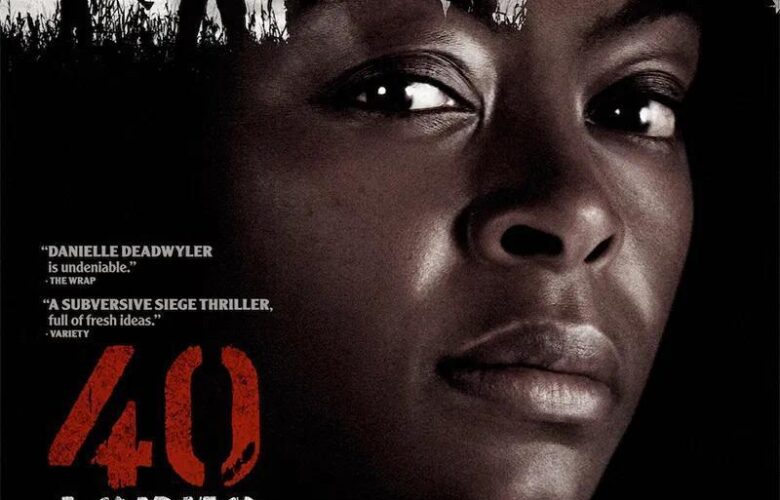Overview & Context
R.T. Thorne’s feature debut crafts a gripping post-apocalyptic world steeped in historical resonance. The title evokes the unkept promise of “40 acres and a mule” to freed slaves, turning the plot’s surviving farm into a symbol of hope, legacy, and resistance. It centers on the Freeman family—Black and Indigenous descendants—defending their ancestral land in Canada amidst societal collapse, following pandemics, famines, and wars.
Performances
- Danielle Deadwyler (Hailey) delivers a commanding, layered performance—tough yet emotionally vulnerable. Thorne’s direction lets her eyes carry volumes of unspoken maternal fear and unwavering resolve. Critics argue her presence elevates the entire film.
- Michael Greyeyes (Galen) brings warmth and cultural grounding through Cree-language moments and family rituals, reinforcing themes of surviving cultural erasure.
- Kataem O’Connor (Emanuel) captures teenage rebellion and yearning for connection perfectly. His arc—seeking love and independence—adds emotional richness, though some pacing lags reliant on familiar tropes.
Themes & Symbolism
- Land as Legacy: The farm, passed down since 1875, becomes a battleground for history—highlighting generational trauma, exile to Canada, and deserved repair that the U.S. failed to honor .
- Cultural Resilience: Through farming, language, and vigilant survival, the Freemans safeguard practices often suppressed. The film intentionally centers Black and Indigenous experiences rarely seen in this genre.
- Family Under Pressure: It’s a microcosm of love, duty, and rebellion—how trauma shapes parenting, and how the younger generation seeks a future beyond survival mode.
Direction, Cinematography & Action
Thorne, emerging from music video and TV, applies a precise, atmospheric visual language. The film opens with a brutal, tight-angled sequence—the family fending off intruders in a visceral choreography of survival.
Cinematographer Jeremy Benning captures the bleak landscape with gritty realism; editors Dev Singh and Sandy Pereira balance suspense with emotional pacing. The second half includes an “eye‑popping” action set-piece praised across reviews .
Strengths & Criticisms
Strengths
- Deep, innovative thematic layering—history meets survival.
- Character-driven intensity keeps drama human even amid high stakes.
- Top-tier acting, led by Deadwyler and Greyeyes, brings nuance and emotional truth.
- Realistic action and atmosphere, favoring tension over spectacle.
Weaknesses
- Some pacing unevenness and plot contrivances, especially around teenage rebellion.
- Finale slightly dips into genre tropes, though still powerful .
Critical Reception & Ratings
- Rotten Tomatoes: ~91% positive reviews; critics praised action realism and thematic depth.
- Metacritic score: ~75/100 .
- Review highlights range from B (Roger Ebert, Arts Fuse) to A– (Original Cin), signaling consistent acclaim .
Final Verdict
40 Acres is a raw, emotionally resonant dystopian thriller that distinguishes itself through its exploration of land, legacy, and cultural roots. Danielle Deadwyler’s performance alone makes it unforgettable, while Thorne’s vision confirms him as a director to watch. Though not genre-defining, it leaves a lasting impression through its humanity and historical depth. A “must-see” for those seeking action intertwined with meaning.
Bottom Line
A gritty, soulful post-apocalyptic saga steeped in history, family, and survival—anchored by standout performances and thematic ambition.
https://www.rottentomatoes.com/m/40_acres

